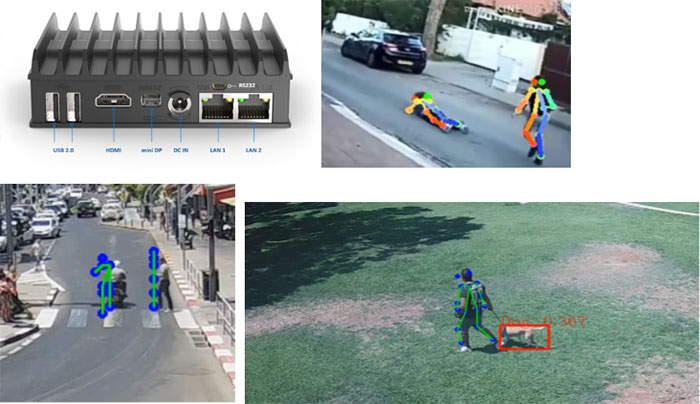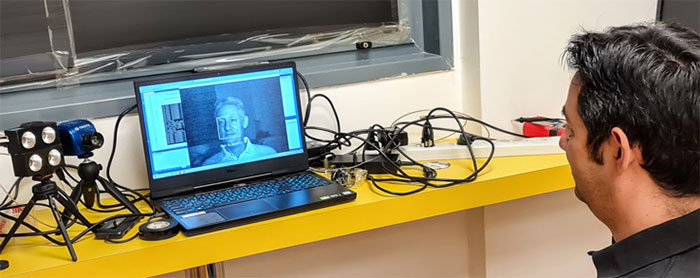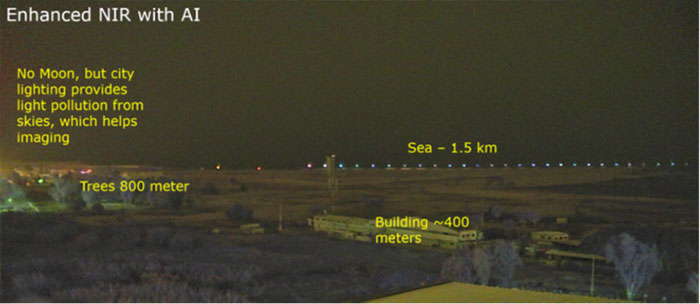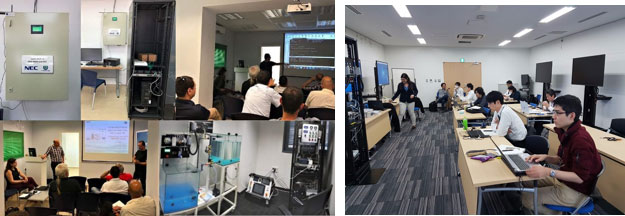Global Site
Breadcrumb navigation
Israel Research Center
Being a Coach Rather than a Player in ResearchOctober 6, 2021

Accelerating Inbound Innovation
The Israeli Research Center’s mission is to accelerate the identification and adoption of disruptive external technologies in NEC’s business. Using NEC’s own research results, ad-hoc new research, and rapid prototyping, IRC works closely with the BUs in Japan and globally to that goal.
The 21st Century tech advances are much faster: disruptions such as Public Cloud, Zero Trust Networks, and Work From Home have propagated globally in just a few years. Rapid execution, not some “core scientific discovery,” lie at the heart of the largest and fastest growing global companies. If one relies just on internal inventions, global impact is impossible.
The challenge is to be able to pick and take a chance on new technologies before they become stable, well known, and obvious – since that creates no differentiation. If we will wait until everything is understood and explained, tested, and validated – it will be late to market. At the same time, we cannot afford to introduce to the market immature products.
IRC is an applied research lab, our researchers are called ”Innovation Coaches” because that is their main task – to “coach” the startups and the technologies, not to be ”players” (researchers) creating the core technologies themselves.
Coaching takes many different forms:
- Helping the startup create a logical value story that NEC Business Units can relate to.
- Validating the core technologies and claims of the startup.
- Identifying potential practical connections to NEC’s current and future business.
- Bridging the gap – often the external tech is not enough. NEC needs to develop complementary capabilities to make it into a useful product for our customers.
- Real customer validation by doing fast low-cost proofs of concept – typically in Israel.
The topics IRC chooses to concentrate on have to be what we call ”a surfable wave”:
- A major global trend, not a niche area –like public cloud, AI healthcare, etc.
- Touches upon NEC core business lines – so for example, consumer gadget technologies may be less relevant.
- Not one but several potential startups and partners – the partners are the ”surfboard” on which we aim to have NEC ”surf” the wave.
Currently, IRC is pursuing four such “grand topics”:
- Edge AI
- AI enabled by new imaging technologies
- Cyber defense
- Healthcare AI
Edge AI – making AI practical for everyday use
The advances of the last decade in deep learning enabled image and video understanding, opening many practical applications. However, cost, power consumption, and size of server-based systems make them impractical for most applications. While high quality imagers have decreased in price and size to less than 10$, the processing hardware required to make sense of that imaging feed is 2 or even 3 orders of magnitude more expensive.
To address this, both large companies like Intel and Nvidia as well as many startups have been developing in the past few years dedicated AI processors, with optimized silicon architecture for deep learning at low power and cost.
IRC has been examining and using the various solutions with far superior throughput at lower cost and price. Leading NEC core algorithms like those of face, object and action recognition have been converted to run on this processor, yielding more than 10-fold reduction in price and power consumption. This enabled competitive video analytics and interaction for access control, public safety, self-driving vehicles, and robotics.

This 350-gram PC with AI accelerators can run NeoFace at more than 20 FPS, run pose estimation at video rates, and supports several traffic cameras, at less than 10 Watts and 600$.
AI enabled by new imaging technologies
Smartphones, assisted driving systems, and fundamental advances in micro-electronics have unleashed new high-quality sensors. Imaging with large optical zoom, higher than 100M pixel sensors, and short wave infrared (SWIR) sensitivity, LIDARs are becoming practical at low cost.
Coupled to the power of deep learning, this opens new use cases: high resolution and optical zoom enable scanning for human activity at large distances. Low light and SWIR enable long distance nighttime perimeter monitoring and AI traffic cameras, as well as “universal biometrics”.
The AI models however need to be adapted or even made from scratch, as academic works and databases typically use high quality, daylight color images by regular sensors. The complications of optical zoom, low light, atmospheric turbulence, and different wavelengths pose unique challenges.
IRC works on both new training methods and new image synthesis methods to create or adapt datasets for these AI models, as well as field testing and validation.


Another type of low light sensor with IRC’s adapted AI can detect people at hundreds of meters in a moonless night with no illumination.
Cyber defense
Cyber-crime and warfare are a clear trend. Recent transition to remote work and remote interaction only increases the risks of data & identity theft and intentional damage to critical facilities and valuable information. Israel is a leader in cyber startups, as well as being a prime cyber development center for companies like Microsoft, Google, and Intel.
IRC’s role is first to map the complex terrain of cyber solutions – a typical cyber product is very hard to understand from documents and continues to evolve on a quarterly basis. These products all have weaknesses, and the interaction between products of different companies is very hard to predict.
IRC is working closely with CSSD and other units in NEC to study, evaluate, and test in semi-live environments the function and operation of these products.
Using white hat hackers who came from Israel’s Defense Forces (IDF), IRC also builds ”test/train” attacks – versions of real cyber-attacks that are broken to pieces so that SOC operators and cyber defenders can train in recognizing and mitigating them.
IRC has built complex virtual and real test setups, simulating IT and OT environments – including electric generation and water plants, based on collaborations with real facilities. On those, the cyber defense products and methodology can be evaluated, and a copy has been provided to Japan with training.
In areas of identity and personal data protection, IRC is leading the way with Secure Multi Party Computing based machine learning inference and training, and works with NEC’s Business Units on applications of such secure machine learning to sensitive financial data of institutions.

Left upper row – IRC digital shadow simulator in Israel’s largest water plant and a live training session. Left bottom row -the IRC simulators in Israel/Japan. On the right, a training course by IRC former IDF hackers to Engineers in Japan .
Healthcare AI
Even before COVID, the adoption of AI in healthcare was growing due to expert manpower shortages and rising costs. COVID has put a tremendous strain on medical staff, increasing the need for automation to double check, catch errors, and streamline operations.
IRC has noted a “wave” of imaging AI startups, and it was clear the topic of assisted diagnostics is going to be big at some point. The number of qualified radiologists was already lagging behind the number of medical images being produced, and the workload was unacceptable. Since then, things got much worse – during COVID, the additional load on medical teams and radiologists meant longer delays in diagnosis. Over the past couple of years, the FDA has issued an impressive number of approvals for AI solutions. There are now several companies in the field with hundreds of employees and thousands of hospitals as customers diagnosing dozens of medical anomalies.
As a first test case, IRC has partnered with NEC Software Solutions UK (previously NPS). This NEC subsidiary is currently providing diabetic retinopathy diagnostics services to more than 70% of the UK population and growing. Thus, they have extensive databases and medical grading experts, as well as the academic connections and the permission to use the data to improve their service.
Within 22 months from first discussion, NEC UK and IRC have built a complete AI grading solution, running on premise or in the cloud, and able to provide more accurate results than the current human grading process. We have also verified this in an academically monitored large scale study of more than 100K patients.
IRC continues to work with Business divisions to introduce AI into medical imaging and medical healthcare as a gateway for future NEC growth in this area.
Location
2 Maskit Street, Herzliya Pituach, Israel
